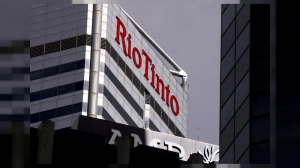


(Posted on 11/04/23)
In the lead up to its Annual General Meetings, Rio Tinto is engaging with investor and civil society organisations on an enhanced approach to advocacy to support the decarbonisation of its operations, in line with the goals of the Paris Agreement.
The discussions have highlighted the need for greater transparency and conversation on the critical role of government policy signals in decarbonisation by creating the right framework for change in hard to abate industrial value chains, coupled with real business action and societal shifts.
Rio Tinto put the low carbon transition at the heart of its business strategy in 2021, setting a clear pathway to provide the materials the world needs for the energy transition and ambitious targets to decarbonise its business.
Rio Tinto’s enhanced climate advocacy approach will include publishing briefing papers on specific assets and emission sources this year, detailing how the right policy-settings can support its Scope 1 and 2 emissions targets, which are aligned with the goal of limiting global warming to 1.5°C, as well as decarbonising the wider value chain. Rio Tinto will engage with the Australasian Centre for Corporate Responsibility during the development of these briefing papers, particularly on the detail included on the identified policy-settings.
Summary of Rio Tinto’s positions on climate change policy:
– grant funding, tax incentives and investment incentives to support R&D, innovation and first-of-a-kind projects
– product standards and procurement obligations (such as minimum and rising requirements for low or zero carbon metal) that drive deployment of pre-commercial technology.
The National Grain and Feed Association (NGFA) has applauded Senator Deb. Fischer’s (R-Neb.) reintroduction... Read more
Anglo American plc and Teck Resources Limited have received regulatory approval from the Government... Read more
The Rhodes Ridge Joint Venture has approved a $191 million (A$294 million) (Rio Tinto share $96 million... Read more
Trafigura Group Pte Ltd, a global leader in the commodities industry, has announced its financial results... Read more
Rio Tinto has successfully produced the first copper from the Johnson Camp mine in Arizona using its... Read more
The American Soybean Association’s World Initiative for Soy in Human Health programme and the... Read more
Karlka Nyiyaparli Aboriginal Corporation (KNAC) Registered Native Title Body Corporate and Rio Tinto... Read more
OCI Global, a leading global producer and distributor of nitrogen products has announced that it has... Read more
In December 2024, SSAB was granted a permit by the Land and Environment Court at Umeå District... Read more
The President of the Republic of Guinea has joined project partners WCS1, Baowu, Chinalco and Rio Tinto... Read more